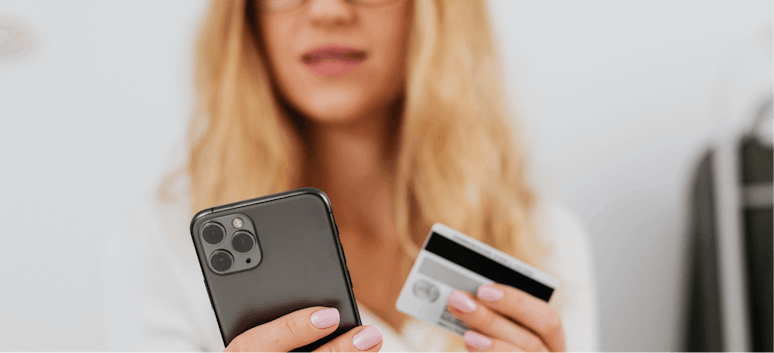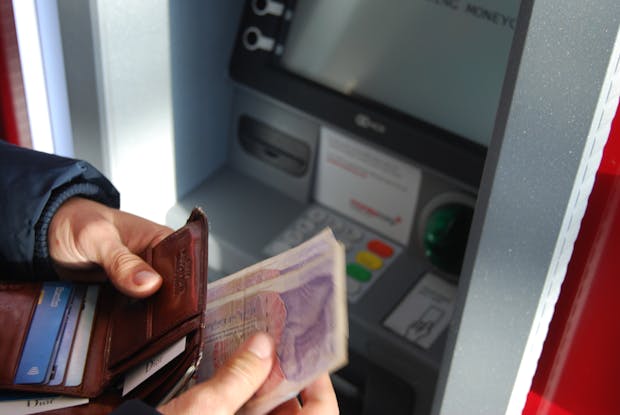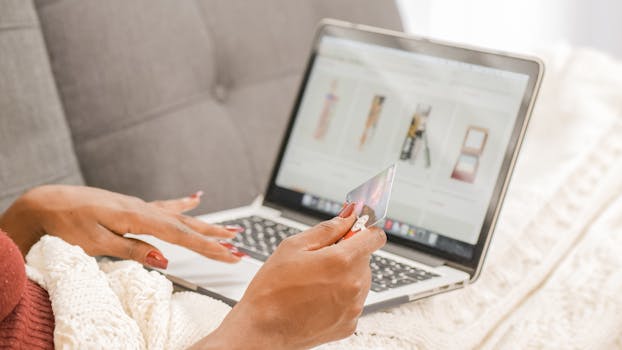Password safety: protecting your accounts online

Whether it’s Amazon, ASOS, social media, or banking, all of your online accounts will be password or PIN-protected. But, with the fast development of technology, scammers and those committing fraud have developed too.
One of the most important things you can do is make sure all of your accounts are protected by strong passwords or PINs. So, if you’re a ‘1234’ kind of password person, this blog is for you!
Why is password protection so important?
Passwords stop unauthorised access to your accounts, whether it’s social media or accounts that have your financial information attached to them.
The stronger the password, the harder to crack it and break in.
As Microsoft Office says, ‘ Using weak passwords is much like leaving the door open to your car or house—it’s just not safe.’
If you picture that, it should help you keep in mind that your passwords and PINs need to be strong.

How to make a strong password:
✅ Strong passwords are usually longer than 8-characters . Aim for 12 characters, including uppercase letters, lowercase letters, numbers, and special characters.
❌Strong passwords should not have any personal information such as birthdays, names, or addresses. So, as easy as it might be to remember the kids’ birthday, try to resist!
To create the strongest possible passwords, here’s a tip:
✅ Use a mixture of words that aren’t in your everyday vocabulary. You can take inspiration from song lyrics, TV, or movies to make it more memorable to you. Similarly, if there’s a place you’ve visited that holds a special memory- like a restaurant, you can use an incorrect spelling of that, mixed with other words. Then, make sure you include special characters and numbers. You can switch out letters for special characters like ! and ?, for example.
How to make a strong PIN:
PIN stands for Personal Identification Number and is the number you’ll need alongside your card when buying items in a shop. Like passwords, it’s also important to have a strong PIN, but with only four numbers to use, this can be tricky! We’ve got you covered:
Firstly, your PINs should be different for every card, device and app. Keeping track of multiple pins and passwords can be hard, but if someone finds out your phone PIN is the same as your banking PIN, it could be used to access and steal your money.
❌Don’t use a date - a birthday may be easy to remember, but this information can also be simple to find on social media or in other places.
❌You would have heard this rule since you opened your first bank account, but sometimes it bears repeating! Avoid repetitive numbers or sequences like 1234 or 7777 as these can be easily guessed.
✅ Choose numbers that no one else knows - and practice memorising them. The more obscure, the better.
✅ Sometimes we leave smudges on our phone screens. Make sure to wipe your screen regularly so that no one can tell what numbers you use after you’ve logged in.
✅ If you have the opportunity, use biometrics (fingerprints and facial recognition) to unlock your phone or banking app. These cannot be replicated by anyone other than you.
🚨If you’re worried that someone could know your PIN for your thinkmoney account, change it as soon as possible. Find out how to change your thinkmoney PIN here
🚨Never give your password or PIN to anyone claiming to work for the company your account is attached to, over the phone or through text. Only you should know your passwords, don’t give them out to anyone,even if they say they need it to help you with a problem- it’s likely a scam 🚨

Account security tips and tricks:
💡 If an account asks you to set security questions, try to avoid using personal details. Again, these can be easier for other people to guess.
💡 When you bank online with your thinkmoney account, we use two-factor authentication (2FA) to make sure it’s you making a payment. You can only approve online payments in the app through Touch or Face ID or by entering a passcode.
💡 Other websites and apps (including social media!) also use 2FA. It’s a good idea to turn it on, as it will keep your accounts safer.
💡Password managers may help you to remember various PINs and passwords.
💡 It goes without saying, but sometimes reminders are good! In public, shield any keypads with your hand when typing a PIN into an ATM or phone.
For more advice:
Visit our hub on how to protect yourself and your money.
Get Safe Online offers general advice on how to keep yourself and your devices safe from fraud.
Cyber Aware is a government site that gives advice on how to stay safe online.

< Back to articles
